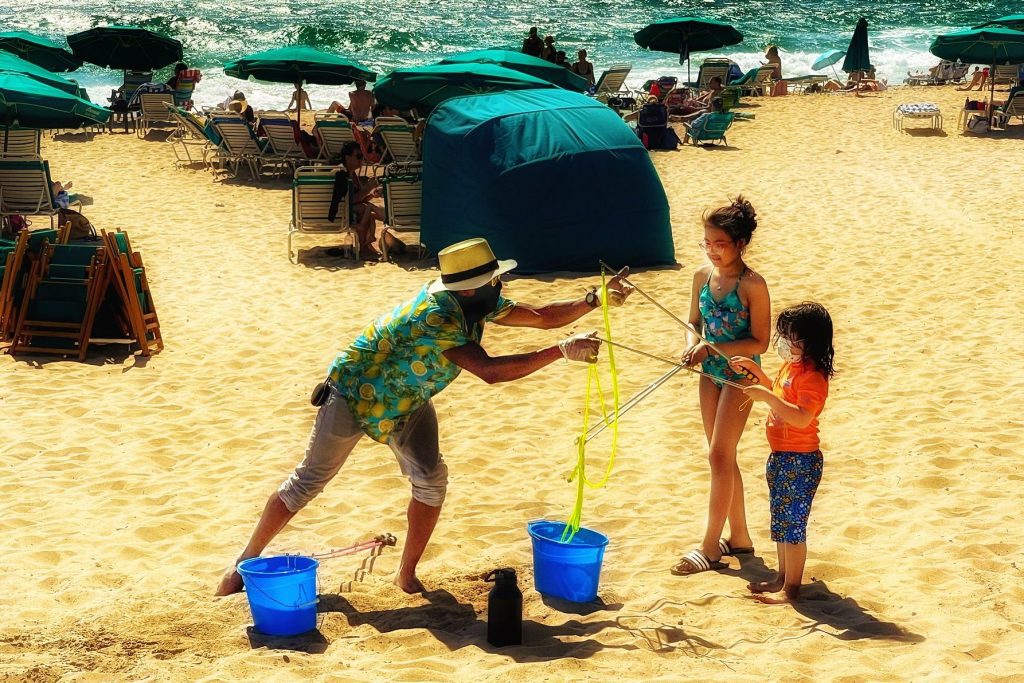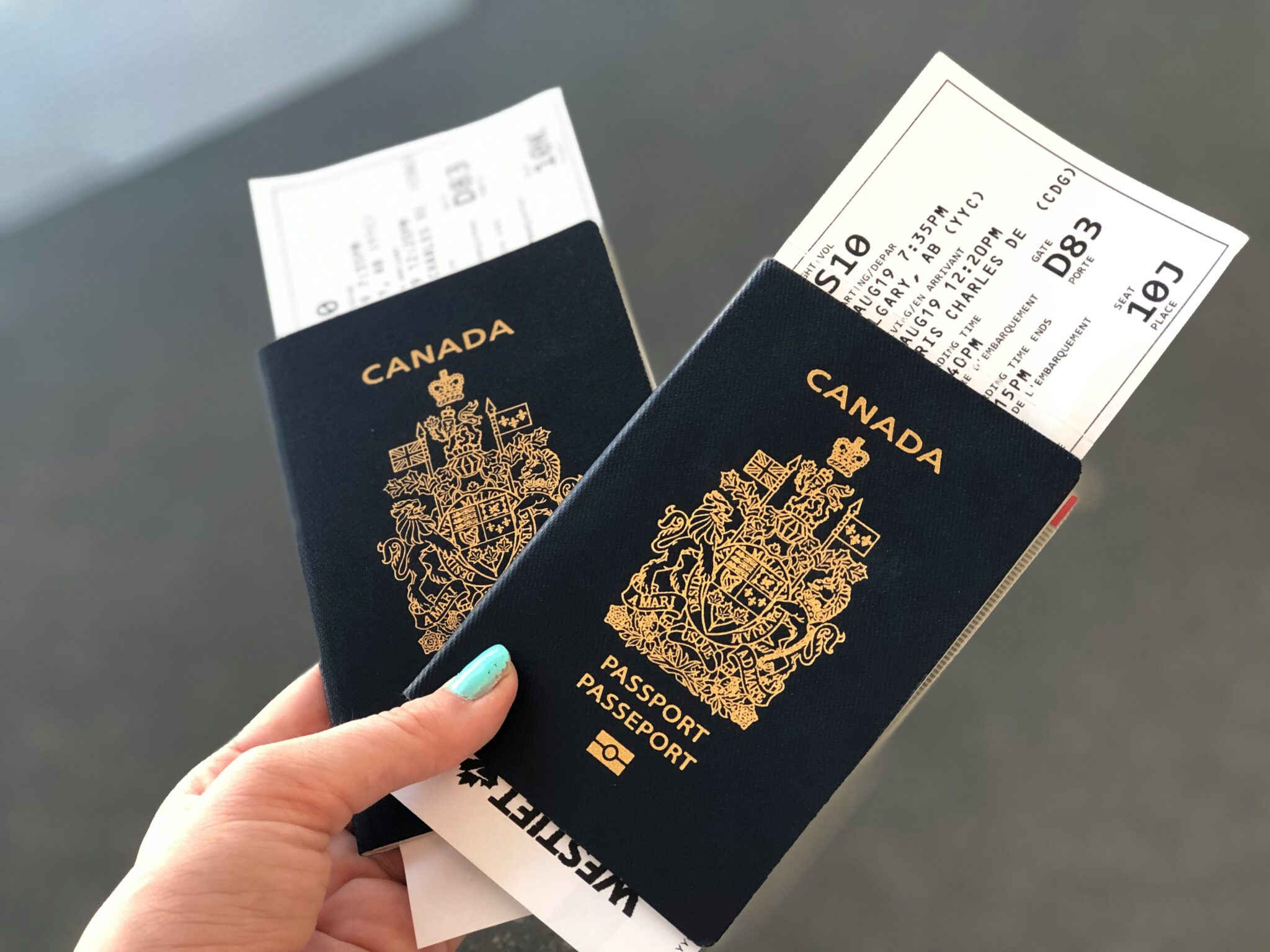U.S. Travel's Great Summer of Shortage

Skift Take
After a nightmarish Covid-ridden past year-and-a half, executives at hotels, short-term rentals, destinations and even airlines in the U.S. are facing the acute pain of missed opportunity this summer when many predict the travel and tourism industry will see one of the strongest surges in demand on record.
On the traveler side of the equation, there will be sold out destinations, sub-par service at overrun hotels and restaurants, elbow-to-elbow seating on flights, and attractions that will be impossible to visit because entry lines will be endless, and parking lots packed bumper to bumper.
Chalk a lot of it up to the great labor shortage of the summer of 2021.
"The shortage in labor across the industry could place travel providers at risk of not being able to bring back capacity fast enough to meet demand, which could lead to a loss in revenue," said Jason Guggenheim, BCG's global head of travel. "Further, it also creates delivery risk, with service interruptions, cancellations and elements of the product experience closed or operating at limited hours, such as certain restaurants at a resort may not have staff to open despite the hotel being at capacity."
But can't travel companies fix this labor supply-and-demand disconnect by offering higher wages? It's not that simple, according to Guggenheim.
"Travel companies are and will pay more to bring back the right amount of labor, but demand is still volatile and so ensuring they bring back labor thoughtfully is critical for their cost structure and ability to generate positive margins and cashflows," Guggenheim said. "Almost every travel company has a weaker balance sheet now relative to pre-pandemic, placing a greater emphasis on producing positive cash flow and slowly reducing the burden of a weakened balance sheet."
Here's a sector by sector look at the travel demand and labor shortage disconnect in the U.S.
Labor Shortages Stymie Hotel Owners
Major hotel companies expect this summer to be the best on record for leisure travel, but there is a labor shortage crisis that puts a ceiling on how well some properties can feasibly perform.
Hotel hiring in the U.S. slowed last month just ahead of the start of the summer travel season: The 35,000 jobs the hotel sector added in May was fewer than the 54,000 jobs added in April. Economists previously told Skift the industry needed to at least maintain April’s hiring pace to be able to better handle the surge of summer travelers.
MCR, the hotel owner and operator behind properties like the TWA Hotel in New York City, has 600 to 700 open positions company leaders are grappling to fill for a variety of reasons, CEO Tyler Morse said last week during the Skift Hospitality & Marketing Summit.
Labor shortages have some hotel operators doing everything from cautioning guests they need to be patient with overworked staff to cutting services like daily housekeeping. Other hotels, like Heckfield Place in the UK, have at times limited guest capacity to maintain customary service levels for guests.
The issue of staffing shortages may seem like a head-scratcher given just how devastating the pandemic has been for travel: Roughly 62 million travel and tourism jobs were lost globally as a result of the pandemic, according to a recent Boston Consulting Group report.
Many operators point to the extra $300 in weekly federal unemployment benefits running through early September in the U.S. as a main culprit for the staffing shortages; though, several economists refute this claim.
Others point to a lack of childcare, continued health concerns during the pandemic, and even a permanent migration out of hospitality to higher-paying employment as other drivers for the lack of workers.
While the industry is optimistic the labor problem will eventually get addressed, it certainly won’t find a fix in time for summer.
“Two years from now it will not be an issue, but, depending on what market you’re in, there will have to be some systemic changes, and we’re all just going to have to plow through and wait it out,” said Morse of MCR.
Short-Term Rentals Face Inventory Shortage
Short-term rental companies such as Airbnb and Vrbo are scrambling to sign up hosts to ensure they'll have sufficient properties this summer in the U.S. to meet what is expected to be a huge uptick in demand, but they likely will fall short.
“You can’t solve for there’s not enough homes in the Outer Banks [of North Carolina] for all the people who want to go to the Outer Banks this summer,” said Jeff Hurst, president of Vrbo and Expedia Group's marketing co-lead, in May. “Some people are going to have to not go to the Outer Banks this summer.”
Speaking at a Skift summit on short-term rentals, Hurst said Vrbo intends to expand from whole homes into other related inventory types such as resorts to meet demand, but he acknowledged this goal was aspirational, and wouldn't happen in time for the summer.
Airbnb is seeing a "strong recovery" in U.S. domestic travel, and the company's operations in Europe have increased every month in 2021, Chief Financial Officer Dave Stephensen told a Nasdaq conference last week.
Airlines Trim Schedules
American Airlines cancelled more than 300 flights last weekend because of inclement weather and staffing issues in the U.S. While not expected to have a material impact on financials, the situation highlights another challenge the industry faces: a crew training backlog.
Following the cancellations, American will cut its schedule by around 1 percent — or roughly 200 or so flights per week — from its schedule through July. This will allow it catch up on re-certifying pilots who were briefly furloughed last fall, as well as train crews who are changing the type of aircraft they fly.
Delta Air Lines has also faced similar pilot staffing shortfalls that forced it to cancel several hundred flights and unblock middle seats earlier than planned in April. The Atlanta-based carrier has faced a backlog retraining pilots on new aircraft types after it accelerated the retirement of its Boeing 777 and McDonnell Douglas MD-88 families last year.
The staffing issues come even after U.S. airlines received more than $70 billion in federal coronavirus relief. However, those funds mean little when there is simply no simulator time available to train more pilots. The Air Current pointed to the issue a year ago when it forecast a coming "logjam" in training events that could limit the industry's ability to recover quickly.
This is not to say airlines expect anything less than a gangbuster summer. Planes will be full and airports busy. The only thing that is missing are lucrative business travelers who are key to the industry returning to profitability.
Overcrowded Destinations
With many international destinations still off-limits or just emerging from their Covid-induced hibernation, some U.S. beach and resort areas, as well as other attractions, may be overrun with tourists.
For example, The Wall Street Journal reported that Arches National Park in Utah often closes by 9 a.m. these days, and advises visitors to return several hours later if they want any hope of getting in.
On Tuesday morning, the park website stated: "The park is currently full, and we are temporarily delaying entries into the park. Vehicles attempting to enter the park will have to come back at another time. Consider returning later in the afternoon or visiting other nearby attractions."
The less-popular Canyonlands, which can have shorter wait times, has been a benefactor as visitors blocked from entering Arches try Canyonlands instead, the Wall Street Journal story said.
Airbnb CEO Brian Chesky has said numerous times since the onset of the pandemic that travelers will change their patterns and visit off-the-beaten-path destinations. That will happen out of necessity in the summer of 2021 because the beaten-path destinations will be, as the description suggests, overcrowded.
The Ripple Effect of Missed Business Meetings
Over the past year, most businesses managed without their in-person meetings, as Zoom calls took over. Deals still got done.
But the trickle down effect from those meetings not taking place in the real world hits hard.
It’s easy to picture. The taxi driver misses out on the passenger going from the office to the airport. The airline loses a lucrative business-class fare, hotels forgo bookings, restaurants don't get dining reservations, and numerous other taxi journeys never happen. Company credit card use would have made for some nice revenue for travel and transportation-related businesses over the past year or so.
Now picture the multiplier effect for conferences and exhibitions.
Employees in the U.S. have regained a fair amount of freedom, but this vast chain of benefactors isn't in the clear yet.
Despite increased bookings and positive signs across the industry, travel policies remain restrictive. It’s no wonder Hilton’s CEO has joined a new campaign to convince more states to allow more “professionally managed meetings” to recover a lost summer.
Internationally, it still doesn’t look great. According to a recent poll, only 12 percent of respondents said their company had resumed non-essential international business travel.
“Our research says it will take some time for companies to allow as many trips – or even the same kind of travel – as they did before the pandemic,” said Suzanne Neufang, CEO of the Global Business Travel Association, which conducted the poll from June 7-11, 2021.
This decreased activity will be compounded by fewer workers returning to offices on a permanent basis after the pandemic (or simply just fewer offices), meaning an uncertain future for city-based hospitality companies in particular.
Note: Skift editorial staff members Cameron Sperance, Edward Russell and Matthew Parsons contributed to this report.





